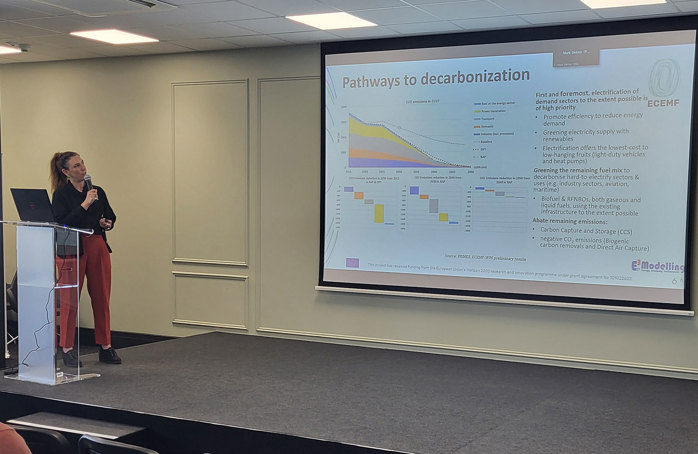
Ricardo's E3Modelling team presents at the 2024 European Climate and Energy Modelling Forum
21 May 2024
Representatives from E3 Modelling (E3M), a team within Ricardo specialising in energy, environment and transportation state-of-the-art modelling services, took part in the fifth Consortium meeting of the European Climate and Energy Modelling Forum, in Warsaw on May 14-15th.
The ECEMF provides a meeting space for European climate and energy policymakers and researchers to discuss current programmes and agree future actions.
As well as E3M, the consortium consists of 14 other research partners from nine countries who share the responsibility of providing accurate, detailed analysis to inform the green transition at both national and European levels.
Hosted in a spirit of collaboration and transparency, the meeting is also an occasion for attendees to debate research objectives and participate in a full-scale model comparison exercise.
During the Forum, Dr. Panagiotis Fragkos, who leads E3M’s Global Energy Markets and Integrated Assessment Modelling team, outlined current progress on Work Package 5, which focuses on examining the EU’s Energy and Climate Policy in a global context.
Renewables and energy efficiency as the two major pillars of the green transition
The following day, May 16th, a special workshop was held with a Polish perspective on energy and climate policy.
Dr. Maria Kannavou, E3M’s Director of Energy systems modelling, presented the energy system transformations based on the PRIMES scenarios in the context of the EU 2040 targets. Key insights from the study includes:
- The PRIMES modelling suite combines agent—and sector-optimization, behaviour modelling, and market equilibrium to simulate green transition scenarios in a comprehensive manner. It captures the non-linear dynamics of technology improvement and resource potentials, with detailed policies as enablers.
- PRIMES-based scenarios confirm that renewables and energy efficiency as the two major pillars of the green transition.
- Electricity will become the dominant energy carrier in the future energy system and has strategic priority due to its high energy efficiency and low production costs thanks to the massive uptake of renewable energy.
- Hydrogen and Climate-neutral synthetic fuels, along with biofuels and biomethane, will complement electrification where necessary.
- Power sector’s decarbonisation must be achieved rapidly so that electricity becomes a carbon-neutral carrier and supports the decarbonization of the demand sectors.
- All sectors will undergo a profound transformation based on increased investment as the new technologies are highly capital-intensive.





 Follow Ricardo plc for regular updates
Follow Ricardo plc for regular updates




